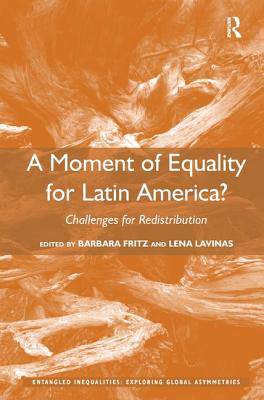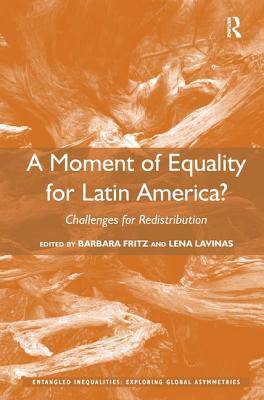
Bedankt voor het vertrouwen het afgelopen jaar! Om jou te bedanken bieden we GRATIS verzending (in België) aan op alles gedurende de hele maand januari.
- Afhalen na 1 uur in een winkel met voorraad
- In januari gratis thuislevering in België
- Ruim aanbod met 7 miljoen producten
Bedankt voor het vertrouwen het afgelopen jaar! Om jou te bedanken bieden we GRATIS verzending (in België) aan op alles gedurende de hele maand januari.
- Afhalen na 1 uur in een winkel met voorraad
- In januari gratis thuislevering in België
- Ruim aanbod met 7 miljoen producten
Zoeken
A Moment of Equality for Latin America?
Challenges for Redistribution
€ 290,45
+ 580 punten
Omschrijving
Unlike other regions around the world, several Latin American countries have managed to reduce income inequality over the last decade. Higher growth rates and growing employment, but also innovative wage policies and social programs, have contributed to reducing poverty and narrow income disparities. Yet, despite this progress, nation-states in the region demonstrate little capacity to substantially change their patterns of deeply rooted inequalities. Focusing on the limits and challenges of redistributive policies in Latin America, this volume synthesizes and updates the discussion of inequality in the region, introducing the perspective of global and transnational interdependencies. The book explores the extent to which redistributive policies have been interlinked with the provision and quality of public goods as well as with structural changes of the productive sector. Inspired by structuralist and neostructuralist thinking of Latin American economists, such as Raðl Prebisch and Celso Furtado, authors question the redistributive impact of the interplay of recent macroeconomic, fiscal and social policies, particularly under left and center-left administrations committed to greater equality. Bringing together experts in social, fiscal and macroeconomic policies to investigate the interdependent and global character of inequalities, this book will appeal to scholars of sociology, economics, development and politics with interests in Latin America, inequality and public policy.
Specificaties
Betrokkenen
- Uitgeverij:
Inhoud
- Aantal bladzijden:
- 284
- Taal:
- Engels
- Reeks:
Eigenschappen
- Productcode (EAN):
- 9781472446725
- Verschijningsdatum:
- 28/09/2015
- Uitvoering:
- Hardcover
- Formaat:
- Genaaid
- Afmetingen:
- 156 mm x 234 mm
- Gewicht:
- 576 g

Alleen bij Standaard Boekhandel
+ 580 punten op je klantenkaart van Standaard Boekhandel
Beoordelingen
We publiceren alleen reviews die voldoen aan de voorwaarden voor reviews. Bekijk onze voorwaarden voor reviews.








